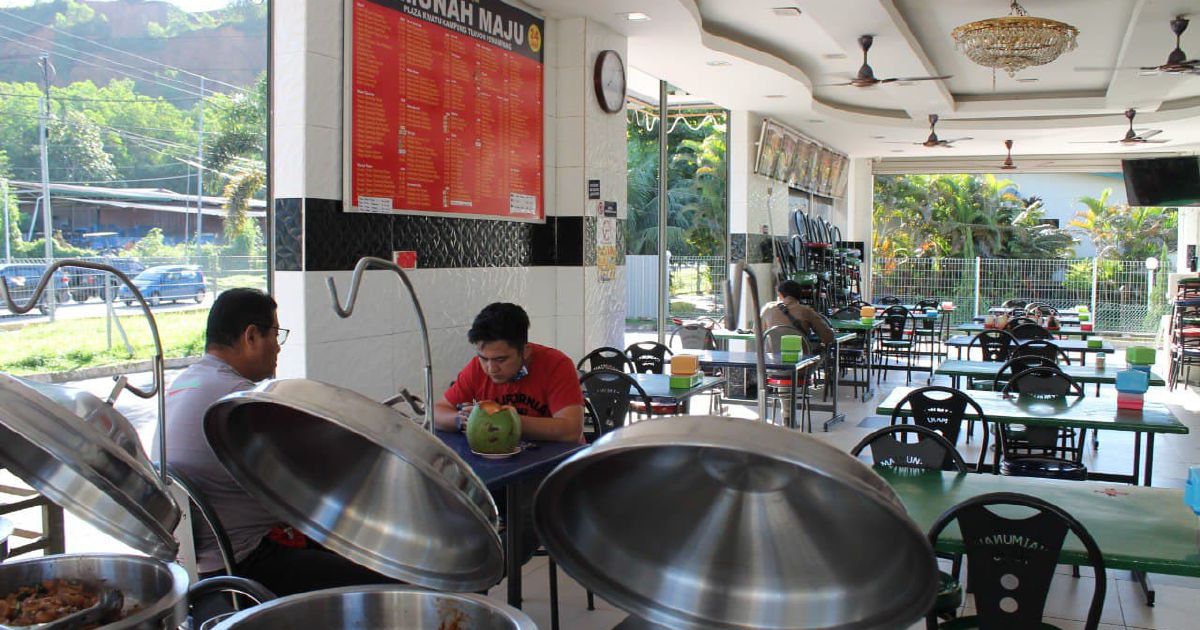A growing number of critics are blasting the PN government’s procession of failures. With Covid’s primary indicators all on the rise, a slower-than-expected vaccine rollout, an openly defiant state pitting itself against the federal government, a sharply rising suicide rate, and a swooning economy, is Malaysia heading for a cliff?
On June 29, despite a solid month of a nationwide lockdown and a ramped-up vaccination effort, Malaysia once again shattered through the 6,000 new cases threshold. Even more worrying, the number of deaths increased sharply, the number of ICU patients increased, the infectivity index crept upward, and the case positivity rate jumped from 7.04 to 9.46%. Bloomberg’s June Covid Resilience Ranking saw Malaysia plunging to the bottom three of all countries surveyed.
Put plainly, critics say, everything is trending in the wrong direction.
MCO 2.0 failed. MCO 3.0 failed. The Emergency has failed. It certainly appears that the latest full-scale lockdown has not met any of its goals, either. And with that in mind, former Prime Minister Najib Razak took to social media to point out the carousel of failures.
“Is the government aware that the three main indicators, namely the new cases, infectivity rate, and positivity rate, are on an upward trend?” he asked in a Facebook post.
Given the unravelling situation, Najib rhetorically asked what possible chance the country had of recording 4,000 cases for seven consecutive days, in order to move on to Phase 2 of the National Recovery Plan.
“MCO 2.0 (second movement control order) failed. MCO 3.0 failed. Will the total lockdown also fail? How many times do you want to fail?” he asked.
/cloudfront-us-east-2.images.arcpublishing.com/reuters/DF42X3FMBFIHBJLO3OUPXNRT6Y.jpg)
Meanwhile, at least two MPs have publicly branded the latest lockdown a failure, and former Finance Minister Lim Guan Eng broke it down by highlighting the numbers.
“On June 1, 100,885 Covid-19 tests were conducted, with 7,105 people testing positive, giving a positivity rate of 7.04%,” he said. “On June 29, there were 68,502 tests producing 6,437 positive cases, yielding a positivity rate of 9.46%.”
Lim pointed out that the 9.46% positivity rate was far beyond the World Health Organization’s maximum recommended rate of 5%.
“This positivity rate is alarming and the highest this year, despite four weeks of total lockdown. The situation has simply become worse,” he said.
Lim charged that the latest number of cases and deaths showed that the Perikatan Nasional administration had acted “too slow and too late,” coupled with an overall poor management of the pandemic.
“Since the ‘whole-of-government’ effort to battle Covid-19 has failed, it is up to us citizens to undertake a whole-of-society effort, together with the King and state Rulers, to do the right thing to win against Covid-19.”
Trade and industry groups such as the Malaysian Employers Federation (MEF), the Malaysian International Chamber of Commerce and Industry (MICCI), and the Small and Medium Enterprises Association (Samenta) have also joined the chorus, calling on the government to admit the lockdown effort has failed and move to reopen economic sectors with strict SOPs.
The groups have also criticised the arbitrary and largely meaningless use of daily case numbers to dictate reopenings, noting that 4,000 is a pointless benchmark and that many businesses would not be able to survive until that number is reached.

POLITICAL MANOEUVRING
A tug-of-war is simmering between the National Security Council (and by extension the federal government) and Sabah’s state leaders. On June 28, Sabah’s Chief Minister Datuk Seri Hajiji Noor announced that the state would allow dine-ins, roadside stalls, hair salons, golfing, fishing, and cycling.
But health and enforcement officers in the East Malaysian state are still telling restaurateurs and patrons that dine-in business is not allowed. The conflict has predictably resulted in confusion.
“[Owners] have been warned by Health Ministry (KKM) enforcement officers not to set up tables for dine-in purposes or risk being issued with a compound as the SOPs were not yet ready,” said Kota Kinabalu member of parliament Chan Foong Hin, adding, “I find the action of such enforcement officers being rather high-handed. The Chief Minister of Sabah already made his announcement expressly allowing dine-ins from today.”
Meanwhile, Senior Minister Ismail Sabri Yaakob said that no state should presume to make its own SOPs, and that Sabah should abide by national rules. “We also informed them that Sabah is no different from any other state in the country,” he said. “Sabah cannot have their own SOPs while the others states follow those set by the National Security Council.”

This was not the last word, however, and as some officials have noted, Malaysia is technically under a recovery plan, and should be looking to that as a guide, not to lockdowns.
Opposition leaders have rallied to CM Hajiji’s side and urged Sabah’s state leaders to stand their ground and not back down from their decision. Former Federal Minister and current Usukan Assemblyman Salleh Said Keruak also threw his weight behind Sabah’s decision.
“I fully support the move by the chief minister and state government to implement relaxed SOPs for Sabah,” Salleh said. “I believe the state government has considered all factors in this matter. Therefore, the federal government must respect the decision and give its support to Sabah.”
A SHOCKING INCREASE
Suicides and suicide attempts in Malaysia have skyrocketed in the first three months of 2021, according to the latest report issued by the Ministry of Health. The report noted that, on average, four people have taken their own lives every day since the beginning of the year, a truly sobering and distressing statistic.
The first quarter of 2021, which ended on March 31, saw 336 suicides recorded, which would represent more than double the numbers from 2020 and 2019, each of which recorded just over 600 cases for the whole of the year.

Health director-general Tan Sri Dr Noor Hisham Abdullah quoted the police as a source, saying that a total 631 suicide cases were reported in 2020, while in 2019 there were 609 suicides reported.
“The Covid-19 pandemic has had a tremendous impact on the mental health of every individual in the world, and the people in Malaysia are no exception to this,” he said.
He added that during such times, more people have a high risk of experiencing mental health problems including depression, as they are faced with overwhelming stress and isolation from their family, friends, and support network.
NOTE: If you are feeling lonely, distressed, or experiencing thoughts of self-harm, we urge you to reach out for help. You are not alone! Befrienders offers free and confidential support 24 hours a day. Contact Befrienders in KL at 03.7627 2929 (hotline); in Penang at 04.281 5161/1108, or in Ipoh at 05.547 7933/7955. You can also email [email protected] or visit the Befrienders website.

ECONOMY SLIDES AGAIN; OUTLOOK NOT ROSY
In December 2020, the World Bank forecasted a nicely rebounding GDP for Malaysia in 2021, predicting a 6.7% expansion. One quarter later, in March, the outlook wasn’t quite so optimistic, but was tempered only a little, with a drop to 6.0% growth.
Well, now they’ve revised the forecast once again, begging the question of how meaningful and accurate these numbers really are.
The latest grand prediction from the World Bank now has Malaysia’s 2021 GDP growth slumping from 6.7% to just 4.5%. Government leaders are putting on a brave face and trying to take it in their stride, with Senior Minister (Trade and Industry) Azmin Ali saying the move was “expected” and Prime Minister Muhyiddin Yassin merely responding, “We took note of the new revision by the World Bank.”
Whether or not the drop was expected, however, really isn’t the point, and if the trend holds, Malaysia may not even achieve 4.5% growth in 2021. Multiple warnings are emerging on a weekly basis that businesses are failing at a harrowing rate, and that many more will close permanently if the lockdowns and business restrictions continue.
THE TAKEAWAY: CHANGE IS NEEDED
The government has repeatedly said that it is trying to balance lives and livelihoods, but it seems to be falling short on both fronts. You know the saying: When you try to please everyone, you end up pleasing no one. A similar sentiment seems to be applicable here, as well.
By acting incrementally and responding only reactively (rather than proactively), using arbitrary benchmarks that experts say are pointless, the government has missed the mark in mitigating the crisis, both from a healthcare standpoint and from an economic standpoint. Frontliners and young doctors are on the verge of going on strike against the government, and every meaningful Covid-19 metric – with the possible exception of the growing rate at which vaccines are being administered – is trending in the wrong direction. This cannot objectively be viewed as a public health success.

The news on the economic front is scarcely better, and may actually be worse. More than 30,000 businesses shut down in the first few months of the pandemic last year, and a large majority of those have not been able to reopen due to virus surges and government-mandated closures and restrictions.
SME Association of Malaysia national VP Chin Chee Seong said about 100,000 companies have ceased operations since the first MCO, and another 50,000 are forecast to go out of business if the current FMCO continues for more than six weeks – it’s already been just over four weeks.
“The affected SMEs, especially in retail and food and beverages (F&B), are just hanging on at the edge of a cliff. About 40% have indicated that they will shut down their businesses should the lockdown continue for the next four weeks,” Chin remarked in a June 8 interview.
“From our recent survey, only 8.6% of the SMEs said business is as usual, but the remaining 91.4% indicated that they will suffer losses from 25% to 100%.”
We can only hope that those in charge will view the circumstances objectively and reach the same conclusion that so many others have reached: The current strategy is not working, and a new, aggressive, and proactive strategy must be devised.
We favour the approach that believes we will not fully eradicate or vanquish the coronavirus, and must instead find a way to live with it as best as we can – just as we do with other endemic pathogens like influenza and rhinovirus – and stop sacrificing so much for so little in return.
"ExpatGo welcomes and encourages comments, input, and divergent opinions. However, we kindly request that you use suitable language in your comments, and refrain from any sort of personal attack, hate speech, or disparaging rhetoric. Comments not in line with this are subject to removal from the site. "



















